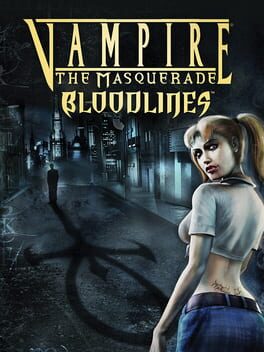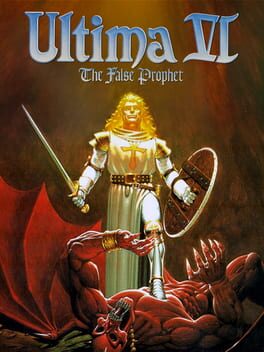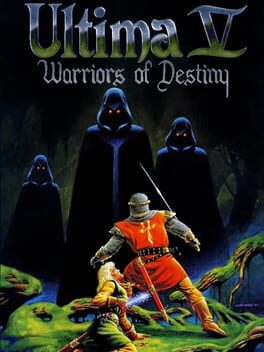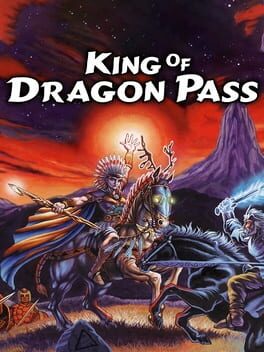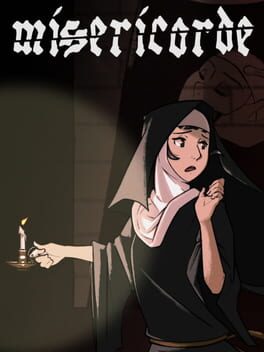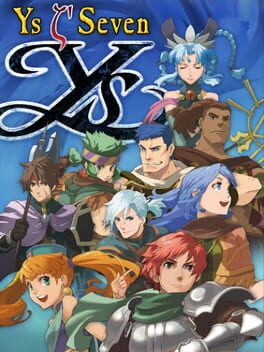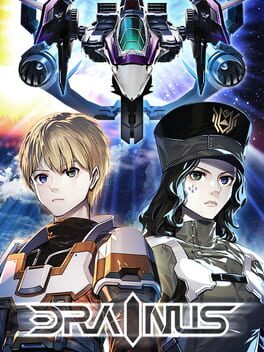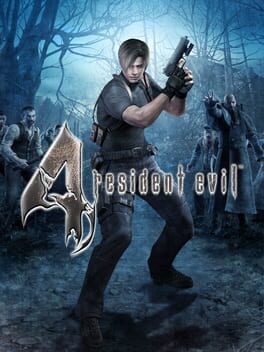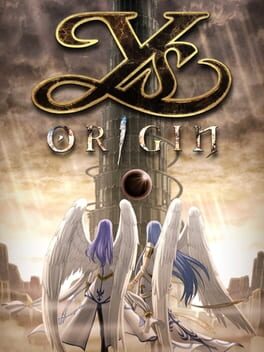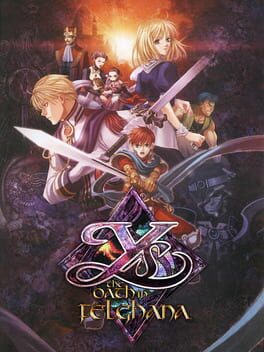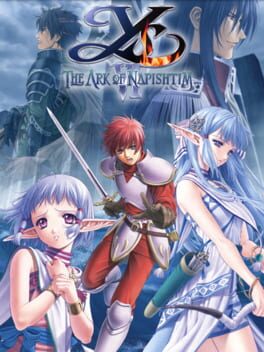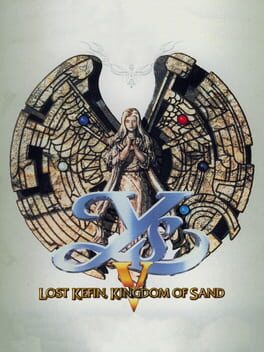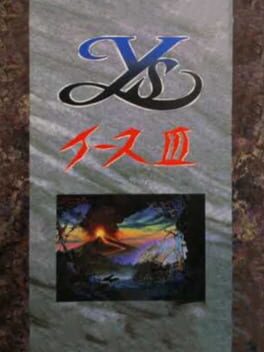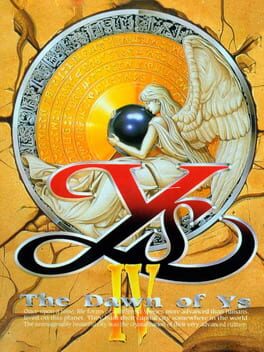MobileSuitLilah
VtM: Bloodlines is a game that I love almost in spite of itself. The vision at it's core is a compelling one - a goth CRPG heavy on dialogue and roleplaying, with deep character creation, a reactive take on the World of Darkness, and systems aimed at simulating the experience of being a vampire. When the game manages to execute on that vision, as it does for most of its first half, there's nothing else like it. There's a dark, palpable atmosphere as you explore the early hubs and dig up interesting sidequests, lure humans into dark alleys to feed, surf the local goth clubs and go through memorably creepy levels like the oft-praised, very haunted Ocean House Hotel. Depending on what clan you choose, your experience interacting with that world can shift dramatically - I played as a hot charismatic Toreador who talked her way through most situations, but I've still not dug into the Tremere (who wield freaky blood magic), the Malkavian (who get significantly different dialogue and hear voices throughout the whole game) or the Nosferatu (whose monstrous appearance requires stealth around humans). Even after 20 years, there still hasn't been another game like it, and it remains gaming's definitive take on vampires.
Unfortunately, it's all wrapped in the skin of a pretty weak Deus Ex-like with bad combat and unsatisfying stealth. While the game rustles up some memorable levels when those levels are focused on narrative, the stealth + combat focused areas are uniformly uninspired, full of repetitive corridors that fail to conjure a sense of place or put the game's systems to any interesting use.
That's fine during the first half, because the focus is much more heavily on role-playing, exploration, and narrative. But as you continue past that, the game's infamous development woes cause the game to start falling apart at the seams in real time. The later hubs start to shrink and become progressively less interesting to explore. There's an increasing reliance on long, repetitive dungeons, including a septic odyssey that ranks among gaming's worst-ever sewer levels. An increasing focus on combat culminates in a series of unavoidable, ultra-hard boss fights with damage-sponge bosses (even with a nearly-maxed out firearms skill, I had to turn on god mode and infinite ammo). The writing isn't spared either, partially thanks to an unpleasant late-game visit to Chinatown that's steeped in racism.
A decade ago, when I first played this, I was unequivocally in love with it. And despite the flaws, I still love it now - I was deep in its clutches until the last few hours, and even then considered starting another playthrough as a different clan. But this is a deeply frustrating game, with very high highs and very low lows. Troika got a raw deal from Activision, and deserved a chance to more fully execute on their vision
Unfortunately, it's all wrapped in the skin of a pretty weak Deus Ex-like with bad combat and unsatisfying stealth. While the game rustles up some memorable levels when those levels are focused on narrative, the stealth + combat focused areas are uniformly uninspired, full of repetitive corridors that fail to conjure a sense of place or put the game's systems to any interesting use.
That's fine during the first half, because the focus is much more heavily on role-playing, exploration, and narrative. But as you continue past that, the game's infamous development woes cause the game to start falling apart at the seams in real time. The later hubs start to shrink and become progressively less interesting to explore. There's an increasing reliance on long, repetitive dungeons, including a septic odyssey that ranks among gaming's worst-ever sewer levels. An increasing focus on combat culminates in a series of unavoidable, ultra-hard boss fights with damage-sponge bosses (even with a nearly-maxed out firearms skill, I had to turn on god mode and infinite ammo). The writing isn't spared either, partially thanks to an unpleasant late-game visit to Chinatown that's steeped in racism.
A decade ago, when I first played this, I was unequivocally in love with it. And despite the flaws, I still love it now - I was deep in its clutches until the last few hours, and even then considered starting another playthrough as a different clan. But this is a deeply frustrating game, with very high highs and very low lows. Troika got a raw deal from Activision, and deserved a chance to more fully execute on their vision
An exciting inflection point for the Ultima series, one where the series' burgeoning interest in world-building and world-simulation collides with improved technology to create the most immersive take on Britannia yet. Everything feels more vivid thanks to mind-blowing 256-color VGA graphics! All of Britannia is now seamless - the overworld and towns no longer happen on different maps! Every NPC has their own character portrait, schedule and personality, and the keyword-and-text-parser based conversation system is meatier and more fun to navigate than ever!
Ultima VI also has an unprecedented-for-1990 potential for absolute tomfoolery within its gameplay systems. Wanna lock an NPC in their home while they're asleep and stop them from going to work? You can! Wanna make guards pass out by casting a sleep field next to them and shoving them into it? Go for it!
Combined with Ultima's usual open-endedness (as always you can tackle your vague objectives and traverse Britannia in just about any order you'd like) and you have an all-time classic sandbox RPG. You can still see its influence snaking out through everything from open world games to the immersive sim genre to the flexible gameplay systems of Larian's RPGs
Ultima VI also has an unprecedented-for-1990 potential for absolute tomfoolery within its gameplay systems. Wanna lock an NPC in their home while they're asleep and stop them from going to work? You can! Wanna make guards pass out by casting a sleep field next to them and shoving them into it? Go for it!
Combined with Ultima's usual open-endedness (as always you can tackle your vague objectives and traverse Britannia in just about any order you'd like) and you have an all-time classic sandbox RPG. You can still see its influence snaking out through everything from open world games to the immersive sim genre to the flexible gameplay systems of Larian's RPGs
For me, Ultima V is defined by a tension between the exciting ambitions of its worldbuilding and the frustrations of its approach towards the traditional strictures of the CRPG.
Ultima V is fascinating, a game that subverts the groundbreaking moral structure of its predecessor by transforming its moral principles into tools of absolutist violence. Its vision of an oppressed Britannia is dark, bleak, and more immersive than ever before, thanks to an impressive-for-1988 devotion to world simulation (there's a day-night cycle! NPCs have their own schedules! you can sit in a chair!) and more fleshed-out writing in NPC conversations.
But my favorite thing about it is its progression. The conversation system is based around keywords and a text parser - a character may have a key piece of information on how to defeat the Shadowlords and free Britannia, but you won't know to ask them about it unless you've spoken to another character halfway across the world. With a journal in hand, this turns the game into an exercise in cross-continent detective work, requiring you to gather and follow-up on clues and leads as you travel from town to town and seek out every human settlement in Britannia. This is where the game shines, requiring you to explore and forcing you to sit with the world the development team has built and see the effects Lord Blackthorn's violent rule has had on the people of Britannia.
Unfortunately Ultima V also wants to be an RPG, and this is where it's at its weakest. I've never been a big fan of the combat in this era of Ultima, and it continues to be relatively slow and tedious here. Character progression takes a frustratingly long time - an unbelievable amount of XP is required to hit the max level of 8, and only the character who deals the killing blow to an enemy gets any XP from it. To top it off, magic kills give no XP whatsoever, cutting off a lot of the tactical usefulness of combat spells, and in classic CRPG fashion, dying down-levels you and removes a significant amount of XP. None of this was much of a problem until I hit the combat-heavy dungeons, most of which are required to get many of the items needed to finish the game. Even after a full 20 hours with a smaller party of 4 characters (out of a max of 8), my Avatar was only level 6, with most of the rest of my party at levels 4 or 5. Suffice to say, getting through the final dungeon was a struggle and I nearly gave up a handful of times.
It's been a decade since I played the first four Ultimas, but I don't remember the combat grating on me so much before. Some cursory reading on the internet confirms that a lot of these problems are unique to Ultima V - combat is harder here and plays a more central role, and it's a lot less forgiving when it comes to doling out XP. While it's in keeping with the game's bleak world and atmosphere, it's also a bummer, and takes away from the game's very real strengths.
Ultima V is fascinating, a game that subverts the groundbreaking moral structure of its predecessor by transforming its moral principles into tools of absolutist violence. Its vision of an oppressed Britannia is dark, bleak, and more immersive than ever before, thanks to an impressive-for-1988 devotion to world simulation (there's a day-night cycle! NPCs have their own schedules! you can sit in a chair!) and more fleshed-out writing in NPC conversations.
But my favorite thing about it is its progression. The conversation system is based around keywords and a text parser - a character may have a key piece of information on how to defeat the Shadowlords and free Britannia, but you won't know to ask them about it unless you've spoken to another character halfway across the world. With a journal in hand, this turns the game into an exercise in cross-continent detective work, requiring you to gather and follow-up on clues and leads as you travel from town to town and seek out every human settlement in Britannia. This is where the game shines, requiring you to explore and forcing you to sit with the world the development team has built and see the effects Lord Blackthorn's violent rule has had on the people of Britannia.
Unfortunately Ultima V also wants to be an RPG, and this is where it's at its weakest. I've never been a big fan of the combat in this era of Ultima, and it continues to be relatively slow and tedious here. Character progression takes a frustratingly long time - an unbelievable amount of XP is required to hit the max level of 8, and only the character who deals the killing blow to an enemy gets any XP from it. To top it off, magic kills give no XP whatsoever, cutting off a lot of the tactical usefulness of combat spells, and in classic CRPG fashion, dying down-levels you and removes a significant amount of XP. None of this was much of a problem until I hit the combat-heavy dungeons, most of which are required to get many of the items needed to finish the game. Even after a full 20 hours with a smaller party of 4 characters (out of a max of 8), my Avatar was only level 6, with most of the rest of my party at levels 4 or 5. Suffice to say, getting through the final dungeon was a struggle and I nearly gave up a handful of times.
It's been a decade since I played the first four Ultimas, but I don't remember the combat grating on me so much before. Some cursory reading on the internet confirms that a lot of these problems are unique to Ultima V - combat is harder here and plays a more central role, and it's a lot less forgiving when it comes to doling out XP. While it's in keeping with the game's bleak world and atmosphere, it's also a bummer, and takes away from the game's very real strengths.
1999
King of Dragon Pass is that rare pleasure, a game that feels fresh and almost totally unique 25 years later. From a high level, it sounds like a strategy game crossed with an RPG: using a simple menu-based interface, you must lead your clan to prosperity over the course of decades, managing your people’s wealth, happiness, and relationships with your gods and other clans. Several times a year, you’re faced with a narrative event that requires you to make a decision as clan leader. Along the way, you’re helped by a group of clan nobles who offer advice and guidance.
But where most other games treat culture as something intrinsically narrative, in KoDP, culture is gameplay. Set in the rich fantasy world of Glorantha, every single one of the game’s systems is governed by the laws, customs, traditions, history and religion of your people, the Orlanthi. It’s a complex harmony of gameplay and worldbuilding where learning the game means learning about Orlanthi culture and fully inhabiting your role as a clan chieftain. In so doing it carves out its own genre, cultural roleplaying. It’s practically a crime that this game was such a commercial failure on release and has exerted such little influence on video games as a whole.
But where most other games treat culture as something intrinsically narrative, in KoDP, culture is gameplay. Set in the rich fantasy world of Glorantha, every single one of the game’s systems is governed by the laws, customs, traditions, history and religion of your people, the Orlanthi. It’s a complex harmony of gameplay and worldbuilding where learning the game means learning about Orlanthi culture and fully inhabiting your role as a clan chieftain. In so doing it carves out its own genre, cultural roleplaying. It’s practically a crime that this game was such a commercial failure on release and has exerted such little influence on video games as a whole.
Misericorde is fantastic, a strange delight that builds a compelling murder mystery out of exciting historical specificity, an atmosphere of gothic dread and a great cast of likable and complex characters whose relationships are ripe for good drama.
But part of why I love Misericorde so much is the writing. Every other pure visual novel I've played, even when good, has tended towards rambly over-written prose. Misericorde is simply well-written on a moment to moment basis - the prose is atmospheric and gives everyone a distinct voice but never feels the need to overexplain itself or belabor a metaphor for five paragraphs. xeecee is simply a good writer and stylist
Anyways what an ending and I can't wait for volume two
But part of why I love Misericorde so much is the writing. Every other pure visual novel I've played, even when good, has tended towards rambly over-written prose. Misericorde is simply well-written on a moment to moment basis - the prose is atmospheric and gives everyone a distinct voice but never feels the need to overexplain itself or belabor a metaphor for five paragraphs. xeecee is simply a good writer and stylist
Anyways what an ending and I can't wait for volume two
2009
Ys Seven pilots the series into a new era, but ultimately ends up feeling like a rough draft. The game has solid bones - a fun and typically fast-paced and dodge-heavy hack-and-slash combat system where attacks build up SP to unleash special skills, as well as a party system to help introduce some variety.
But the game is constantly getting in its own way with weird balancing issues - SP takes waaaaay too long to build up, and bosses are giant damage sponges that draw fights out two to three times as long as they should be. The result is a game that feels both fast and sluggish in its moment-to-moment rhythms. Another key flaw? Only the slash-type characters are really any fun to play as (Dogi hits like a truck but he moves like one too).
I had an okay time with it despite everything. But this is easily one of the weaker Ys games, and the fact that it was by far the longest Ys to date on release really doesn’t help with that
But the game is constantly getting in its own way with weird balancing issues - SP takes waaaaay too long to build up, and bosses are giant damage sponges that draw fights out two to three times as long as they should be. The result is a game that feels both fast and sluggish in its moment-to-moment rhythms. Another key flaw? Only the slash-type characters are really any fun to play as (Dogi hits like a truck but he moves like one too).
I had an okay time with it despite everything. But this is easily one of the weaker Ys games, and the fact that it was by far the longest Ys to date on release really doesn’t help with that
2022
Drainus is Team Ladybug’s stab at a classic home console-style shmup - it’s bombastic, visually gorgeous and also somewhat fascinating mechanically in ways that would be difficult to pull off in an arcade. First off is its central absorption mechanic - your ship has a “guard” meter allowing it to absorb a certain number of bullets. This makes the game somewhat more forgiving for newcomers, and also becomes a central traversal mechanic - there are several points where unavoidable lasers require quick use of your guard meter. On top of that, it takes inspiration from Gradius’ customizable power-up system with full-on RPG mechanics - as you destroy enemies you earn “energy tanks” which can be spent on new weapons and various other ship upgrades. Said weapons can be mixed-and-matched to suit your playstyle and develop a custom power-up curve until you’re running with a ship that’s an absolute powerhouse with max power-ups, which can be immensely satisfying.
Unfortunately the difficulty is rather off-balance - it suffers from the classic shmup problem of becoming much more difficult if you lose your power-ups, which here is exacerbated by how long some of the boss fights take and how weak your base pea shooter is. It can be deeply frustrating to make a few mistakes through a stage, lose all your power ups and hit a checkpoint, forcing you to start over or enter into the longest boss fight of your life.
Despite those frustrations I still had a great time. It’s a fun experience all the way through!
Unfortunately the difficulty is rather off-balance - it suffers from the classic shmup problem of becoming much more difficult if you lose your power-ups, which here is exacerbated by how long some of the boss fights take and how weak your base pea shooter is. It can be deeply frustrating to make a few mistakes through a stage, lose all your power ups and hit a checkpoint, forcing you to start over or enter into the longest boss fight of your life.
Despite those frustrations I still had a great time. It’s a fun experience all the way through!
2011
2006
Ys Origin is more of an incremental sequel than anything else, taking the basic gameplay of Felghana, smoothing out the remaining rough edges, and adding some gameplay diversity with three playable characters with different gameplay styles. The third character, a super-fast short range melee character, is especially fun. It’s a smooth, breezy experience that goes down easy.
But, while it’s a good Ys game, it suffers in comparison to Felghana, whose intensity it can’t match - it’s an easier game, with slower, more Zelda-like boss fights. And I think it loses something by being a pure dungeon crawl, leaving behind the sense of a wider world around you.
I also think the game suffers for having different storylines for each character, but putting them each through the same dungeon and boss fights. It’s not as repetitive as I feared, because the game is so combat-forward and each character’s different base mechanics change things up quite a bit. But WOW this game is far too long if you do all three routes, and as fun as the third character is, I couldn’t wait for the game to end
But, while it’s a good Ys game, it suffers in comparison to Felghana, whose intensity it can’t match - it’s an easier game, with slower, more Zelda-like boss fights. And I think it loses something by being a pure dungeon crawl, leaving behind the sense of a wider world around you.
I also think the game suffers for having different storylines for each character, but putting them each through the same dungeon and boss fights. It’s not as repetitive as I feared, because the game is so combat-forward and each character’s different base mechanics change things up quite a bit. But WOW this game is far too long if you do all three routes, and as fun as the third character is, I couldn’t wait for the game to end
The first two Ys games succeeded in large part due to their speed and momentum, a delicate balancing act created by the combination of fast and simple combat and a banger soundtrack. The Oath in Felghana understands this and absolutely recaptures their spirit in one of the best games this series has ever produced.
Felghana takes the solid bones of The Ark of Napishtim and polishes them to a mirror sheen: the combat and movement are faster and more fluid, with the removal of consumable items and a power-up + hit counter system creating a greater sense of momentum; boss fights are challenging, but cleverly designed and satisfying; the music is some of the best this series has ever seen. It’s a game with a laser-focus, nearly all combat and movement once you get into a dungeon, and that focus pays off in a game with few missteps.
But Felghana is also a master-class in how to remake a video game. Wanderers from Ys is much reviled, an experiment undone by its wonky combat and terrible use of vertical space. Felghana preserves what worked…but it’s also surprisingly faithful to what didn’t. It absolutely retains the verticality of the original game, its emphasis on platforming, with some room layoutsbeing practically identical re-creations. In doing so, it preserves the original’s identity, taking its failed ideas and re-visiting, re-contextualizing, and re-executing them to make them sing in a way they never did before.
Felghana takes the solid bones of The Ark of Napishtim and polishes them to a mirror sheen: the combat and movement are faster and more fluid, with the removal of consumable items and a power-up + hit counter system creating a greater sense of momentum; boss fights are challenging, but cleverly designed and satisfying; the music is some of the best this series has ever seen. It’s a game with a laser-focus, nearly all combat and movement once you get into a dungeon, and that focus pays off in a game with few missteps.
But Felghana is also a master-class in how to remake a video game. Wanderers from Ys is much reviled, an experiment undone by its wonky combat and terrible use of vertical space. Felghana preserves what worked…but it’s also surprisingly faithful to what didn’t. It absolutely retains the verticality of the original game, its emphasis on platforming, with some room layoutsbeing practically identical re-creations. In doing so, it preserves the original’s identity, taking its failed ideas and re-visiting, re-contextualizing, and re-executing them to make them sing in a way they never did before.
A necessary reinvention for the Ys series, Ys VI has good bones, with its charming aesthetic and fun, fast-paced new combat system. But it feels like that reinvention isn’t all the way there yet - while it’s often good, a few stumbling blocks (an unfun weapon, one or two awful dungeons, some meh boss fights and a merely okay soundtrack) stop the game from really singing and taking off the way the best Ys titles do. Still, it’s a major step up from Ys V and feels like the series is heading in the right direction and regaining some of its identity.
Workmanlike and unambitious, Ys V abandons the identity the series has built over the course of four games in favor of a relatively generic 7 hour SNES action RPG dominated by a sense of ennui. The combat is competent-but-flat, the boss fights are easy and uninteresting, the dungeon design is very basic and the desert setting is distressingly underutilized. In many ways it’s more polished and better constructed than, say, Ys III. But unlike Ys III, it’s a game devoid of passion and excitement, of any elements to make it really “pop” and stand out from the many other action RPGs on the SNES.
1991
Better than its reputation would suggest, at least in this version, Ys III starts as a total banger thanks to its fast paced combat and incredible soundtrack. But the game turns frustrating whenever any friction or level of difficulty is introduced, which starts to happen after the second stage or so. Boss fights are horribly awkward, vascillating wildly between “extremely difficult” to “dies in 5 seconds if you stand in the right spot”, and don’t get me started on the platforming. Combat can be snappy but especially in the later stages turns into “stand in a spot and swing your sword really fast while an enemy walks into it so you don’t lose 15% of your health per hit”.
And the plot! They decided to give Adol a voice here and hey it turns out he’s a rampant misogynist, committing micro and macro-aggressions against Elena left and right. Mistake
Still there are things to enjoy here. The fundamental concept is sound, and you can see the bones of a fun side scroller, one that could have been realized with some more polish. The stage backgrounds are ambitious and exciting, and the combat can be snappy thanks to the absurd speed at which Adol swings his sword. And once again the soundtrack is top-tier, especially with the CD quality in this port. The game is at least playable and has its charms if you’re interested in seeing the evolution of the whole series
And the plot! They decided to give Adol a voice here and hey it turns out he’s a rampant misogynist, committing micro and macro-aggressions against Elena left and right. Mistake
Still there are things to enjoy here. The fundamental concept is sound, and you can see the bones of a fun side scroller, one that could have been realized with some more polish. The stage backgrounds are ambitious and exciting, and the combat can be snappy thanks to the absurd speed at which Adol swings his sword. And once again the soundtrack is top-tier, especially with the CD quality in this port. The game is at least playable and has its charms if you’re interested in seeing the evolution of the whole series
Something of a last bow for the classic era of Ys, Dawn of Ys is a strict-but-lavish take on the formula established by the first two games. It brings back bump combat, and like the first two games, the simple combat and excellent soundtrack combine for a game that is great to just vibe to. But it also goes bigger - it's longer than the first two games combined, with more dungeons, more boss fights, plenty of returning characters, loads of cutscenes (some of which feature limited but very impressive animation), voice acting, and lavish character portraits.
The effect of the larger scale and scope is a little bit mixed, though. The classic Ys formula is simple and fast-paced, and thrives on being lean. Ys I gets you in and out before you can even blink, and while Ys II is longer, it's still a short game, helping prevent the simplicity from tipping over too much into repetition.
Dawn of Ys is, to be honest, too long, and feels a little bloated. The later boss fights are cool but by that point the scale has tipped too far into repetition. Frustratingly labyrinthine dungeon design in the latter areas is a problem in the first two games as well, but it grates harder here. There's an entire section involving a return to Esteria and whole sequences involving a Romn general that feel unnecessary.
Still, I don't want to be too harsh on it - it's a pretty well-executed take on classic Ys, and still a lot of fun to play. Despite the bloat, I had a great time with it and I think it's very much worth a play for fans of the first two
The effect of the larger scale and scope is a little bit mixed, though. The classic Ys formula is simple and fast-paced, and thrives on being lean. Ys I gets you in and out before you can even blink, and while Ys II is longer, it's still a short game, helping prevent the simplicity from tipping over too much into repetition.
Dawn of Ys is, to be honest, too long, and feels a little bloated. The later boss fights are cool but by that point the scale has tipped too far into repetition. Frustratingly labyrinthine dungeon design in the latter areas is a problem in the first two games as well, but it grates harder here. There's an entire section involving a return to Esteria and whole sequences involving a Romn general that feel unnecessary.
Still, I don't want to be too harsh on it - it's a pretty well-executed take on classic Ys, and still a lot of fun to play. Despite the bloat, I had a great time with it and I think it's very much worth a play for fans of the first two
